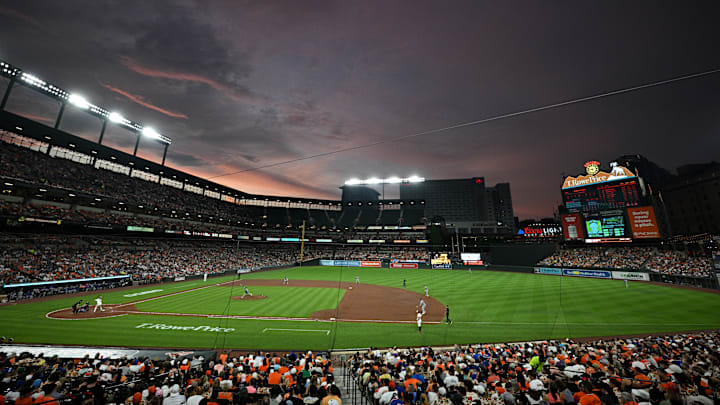The 2006 New York Mets are remembered for many things. Aside from breaking hearts in the end, it was one of the most potent offensives ever assembled. In July of 2006, the MLB trade deadline was in full bloom. Despite having a 23-year-old Jose Reyes at shortstop, the team was apparently a finalist to land Miguel Tejada at the trade deadline.
ESPN put together a fun and fantastic story about trade deadline tales. Included was one involving a Tejada trade from the Baltimore Orioles in 2006 that never came to life.
We can only imagine what it would have cost to acquire Tejada who ended up finishing the year with 24 home runs, 100 RBI, and a .330 batting average. Still appearing to be in the peak of his career, it’s probably for the best that the Mets didn’t repeat the same mistake by trading for an Orioles shortstop.
The Mets were in the mix to land Miguel Tejada in 2006 and it’s not a bad thing they failed to
Tejada’s power numbers immediately dipped after the 2006 season. A consistent slugger from 1999-2006, he never reached 20 home runs again in his career. The batting average remained stable, but minus the middle of the order power he provided—developing more exclusively into a doubles hitter—he wasn’t quite the same thereafter.
The Orioles did end up trading Tejada after the 2007 season when he was even less of a power threat. He topped out at 15 home runs in 2010 which would be his last full season in the majors. The 2002 MVP was under team control through 2008, eventually re-signing with the Orioles after the 2009 following a pair of seasons with the Houston Astros.
One can imagine what the Mets might have had to give up to acquire Tejada. Would Jose Reyes have been a requirement? The team could have moved him to second base in place of Jose Valentin who had a surprisingly impressive 2006 season. David Wright at third base and no universal DH would have meant some sort of sacrifice on the infield to make room for Tejada.
Mets history can be rewritten to a point where maybe having Tejada rather than Reyes has the team headed in a different direction. However, Tejada failed to have a large enough impact anywhere he went after his early days with the Oakland Athletics. They are the only team he ever appeared in the postseason with.
In 2000, the Mets (in)famously traded for Orioles shortstop Mike Bordick. A part of the cost was Melvin Mora, a capable enough shortstop. He’d develop into an All-Star player while Bordick was not a solution for a World Series-bound Mets club in 2000. It could be considered one of their lousier trade deadline deals where they might have had a solution all along. The same thought process could have been true if they were the highest bidders for Tejada and Baltimore ownership approved.
